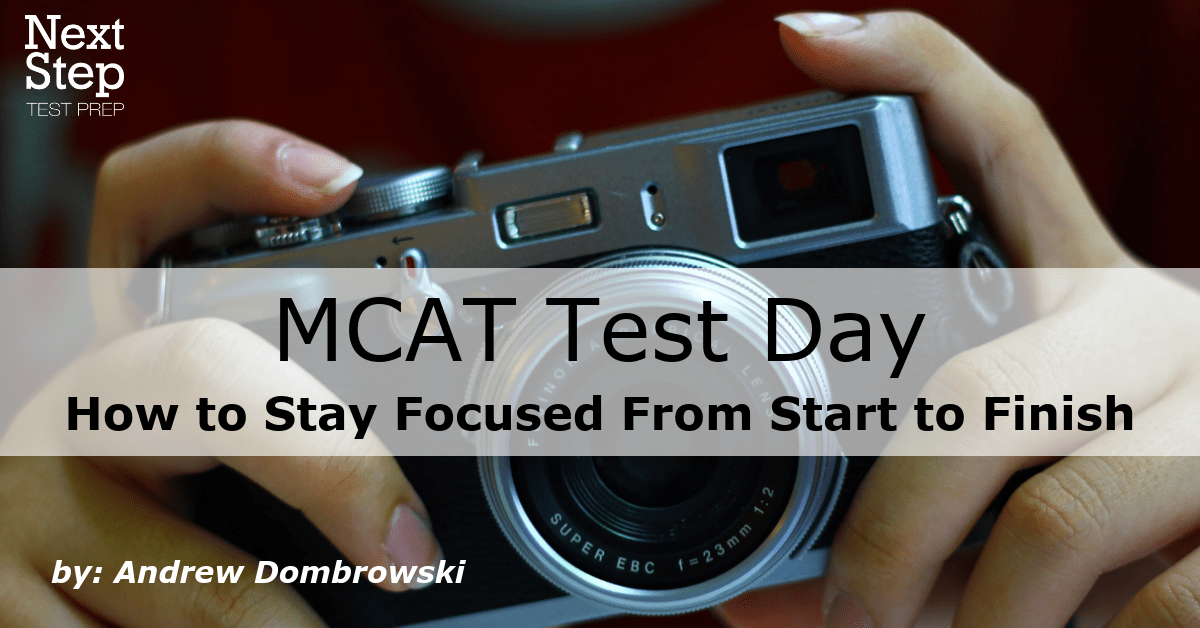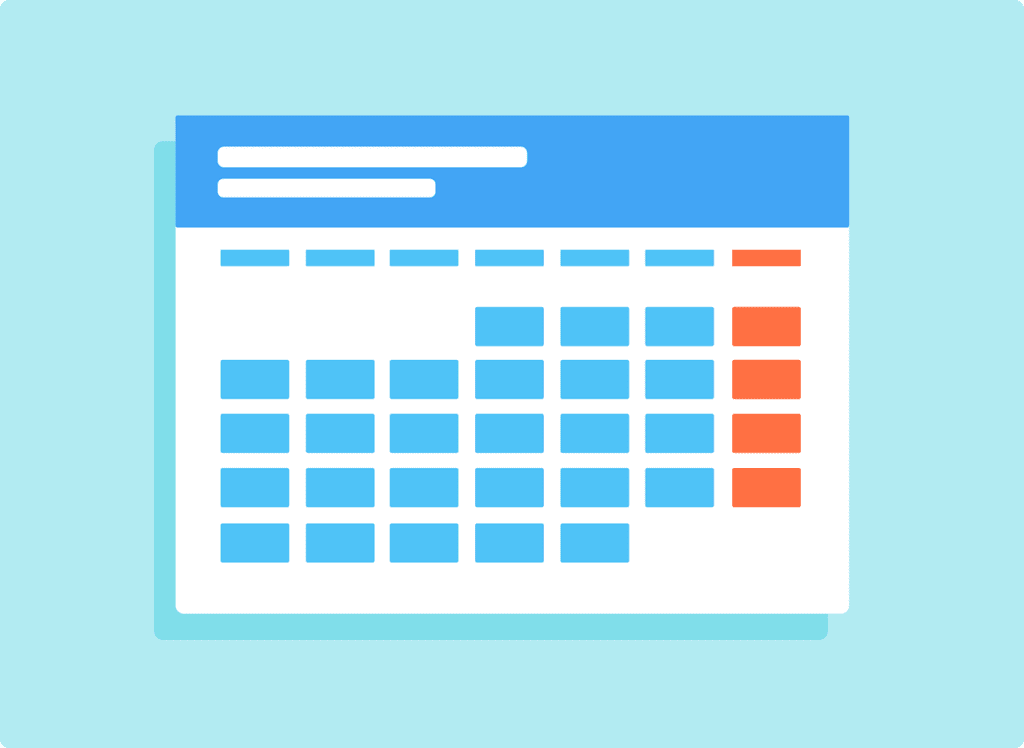
The MCAT is a grueling exam not just because it requires extensive science mastery and the ability to actually apply that knowledge (although those are major challenges), but because it’s an all-day test unlike anything that you are likely to have encountered in college.
If you take full advantage of your breaks and all the time allotted to you, the MCAT can take 7.5 hours. Maintaining your energy and focus for such a long period of time can be a real challenge, yet it is crucial to get the most out of the science and strategy knowledge that you have spent so much time cultivating.
In this blog post, we’ll review some techniques for helping you develop this key component of MCAT mastery. Practicing is the single biggest thing you can do to develop the ability to focus for 7.5 hours. First and foremost, this means taking realistic practice full-length exams, such as the three currently available AAMC exams and the suite of 10 full-length exams offered by Next Step. However, there’s more to practicing than meets the eye.
In particular, you’ll want to:
Self-Assess
Self-assess how much practice you will need. Based on this, you’ll determine how many practice full-length exams you need to take. For most students, the answer will be roughly between six and ten. You may want to consider taking more if you’re going to be preparing for a long time and/or if you know that you will need to put particular focus on timing/pacing, but be sure to allow yourself time to carefully review the exams too – that’s where the magic really happens!
Simulate the Real Thing
Take practice full-length exams under realistic conditions. Next Step’s practice exams accurately mirror the format you’ll encounter on Test Day, but you should simulate everything else about the testing experience to get the most out of your practice. First and foremost, that means closing other browser screens and putting away your phone. You won’t have those distractions on Test Day, so get used to operating without them.
It can also be useful to take full-length exams in places like libraries – that is, places that are quiet (but not perfectly so) and are outside of the comfort of your own home. This also means taking the test in the morning. This might be hard if you’re a night owl, but on Test Day you’ll have to be operating at 100% efficiency by 8 AM.
Intensity Matters
Take the tests with the same intensity you would have for the real thing. When you’re taking a practice exam and encounter a really challenging or frustrating passage, it can be easy to let it slide, knowing that you’ll be able to review the answer later. Fight this tendency! There’s an important balance you need to strike here: on one hand, it is true that practice exams are just practice and that the only score that really matters is the one on Test Day, but on the other hand, you need to build up the mental habits that will contribute to success on Test Day too, and that means treating every question like it matters.
Take Breaks Like Test Day
Use your break time realistically. Take your 10, 30, and 10 minute breaks, but maybe shave a couple of minutes off to account for the time you’ll need to check in and out at the testing center. Eat a quick lunch – the kind you’d be able to pack with you on Test Day. Do some stretching. Hit the bathroom. Avoid distractions like smartphones and social media.
Healthy Habits
In addition to realistic practice, develop healthy habits. The brain doesn’t exist in isolation from the rest of your body. Try your best (although it can be hard!) to get a healthy amount of sleep, to exercise, and to eat a healthy diet. Engage in mental self-care – take walks, see friends, meditate, or do anything else that helps you ground yourself. You’ll find that these habits will also pay dividends in terms of developing your concentration.
A final point is that you can also use your studying process to help develop focus, by trying to channel some similar habits, like avoiding social media distractions. Studying is not quite the same thing as test-taking, but it can also be a venue for you to help develop your ability to pay attention to dense material for sustained durations.
Getting Started
Taking focus and concentration seriously early on in your study process is an excellent idea. If you’re just getting started with your prep, Next Step offers a free MCAT practice test bundle that includes a half-length diagnostic, access to our first full-length practice test, and a demo of our online course. You can sign up for the free practice bundle here. If you’re looking for more comprehensive prep, we also offer one-on-one tutoring programs as well as an online MCAT course.
Not sure where to start? Set up a free consultation with one of our veteran Academic Managers. They will go over your prep needs and help you decide what prep options are right for you.
Good luck!
Search the Blog

Free Consultation
Interested in our Online MCAT Course, One-on-One MCAT Tutoring or Med admissions packages? Set up a free consultation with one of our experienced Senior Student Advisors.
Schedule NowPopular Posts
-
MCAT Blog What's on the MCAT?
-
MCAT Blog How to Review MCAT Full Lengths

Free MCAT Practice Account
Need great MCAT practice?Get the most representative MCAT practice possible when you sign up for our free MCAT Account, which includes a half-length diagnostic exam and one of our full-length MCAT practice exams.
Learn More







